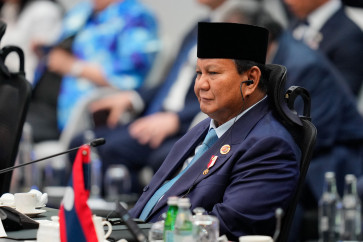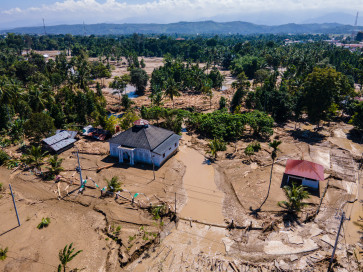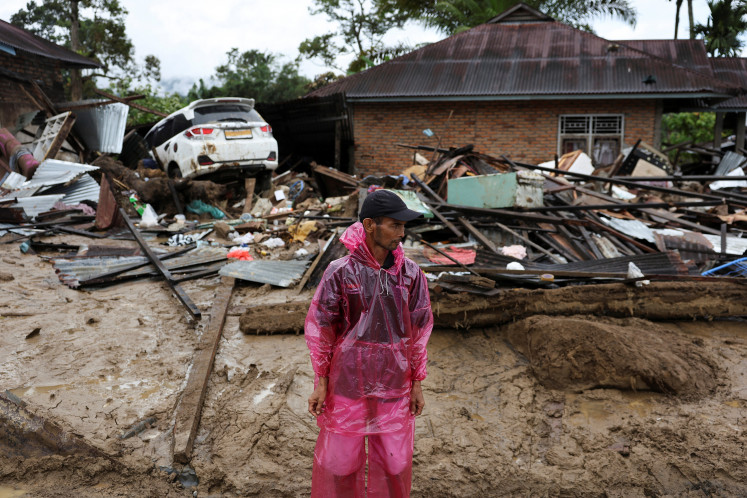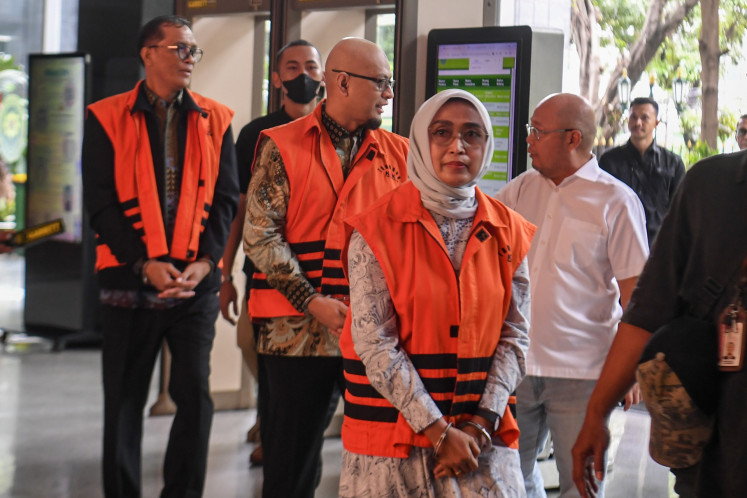Popular Reads
Top Results
Can't find what you're looking for?
View all search resultsPopular Reads
Top Results
Can't find what you're looking for?
View all search resultsFood estate project may turn Papua into forest fire hotbed
While the annual land and forest fires usually occurr in Sumatra and Kalimantan, a large agricultural project in Merauke, Papua, could turn the eastern part of Indonesia into a new hotbed of fires in the archipelago
Change text size
Gift Premium Articles
to Anyone
W
hile the annual land and forest fires usually occurr in Sumatra and Kalimantan, a large agricultural project in Merauke, Papua, could turn the eastern part of Indonesia into a new hotbed of fires in the archipelago.
The prediction was based on a latest finding by Greenpeace Southeast Asia, which monitored 112,000 hot spots from Aug. 1 to Oct. 26.
'One of the most worrying things is the fact that 10 percent of the hot spots were found in Papua, the newest agriculture industry development. Fires of such a scale had not happened before in Papua,' Greenpeace Indonesia forest political campaigner Teguh Surya said during the launching of the finding on Thursday.
The largest number of hotspots during that period, 25 percent, was detected in Central Kalimantan with 28,368, followed by South Sumatra with 24,406 or 22 percent. Papua came in third with 11,590 or 10 percent.
Papua usually does not suffer from forest fires as the operation of palm oil concessions is still limited in the province.
However, this year marks a turning point of the annual forest fires in Indonesia, with the Meteorology, Climatology and Geophysics Agency's (BMKG) starting to detect hot spots in southern areas of Papua, with 92 spotted in Merauke regency and the remaining 12 in Mappi regency in mid-October.
Flights in several parts of West Papua and Papua provinces, including in Jayapura, Manokwari and Timika, were canceled after visibility dropped to as little as 150 meters in places. Almost 80 percent of the smog in Manokwari is coming from fires in Merauke. The light haze even reached as far as Micronesia.
With the hot spots in Papua concentrated in Merauke, it is easy to see the correlation between the Merauke Integrated Food and Energy Estate (MIFEE) program in Papua and the sudden appearance of hot spots in the province, according to another Greenpeace Indonesia forest campaigner, Yuyun Indradi.
'The connection is clear. If you look at the map, the concentration of the hot spots in Merauke is in the MIFEE area,' he said on Thursday.
The number of hot spots in Papua was even bigger than the 2,423 hot spots detected in Riau, which usually held the dishonorable distinction of being the province with the highest number of hot spots in previous years.
While Greenpeace believed that the forest fires in Papua were caused by the project, Environment and Forestry Minister Siti Nurbaya Bakar said that the fires might be caused by nomadic people.
'If the forests are burned and rain falls after that, grass will grow back and become green and animals will come. It will become hunting ground for nomadic groups. These aspects are being investigated by us,' she recently said.
The MIFEE project is expected to cover a 1.2 million hectare area, or a quarter of Merauke. The idea of the MIFEE program was started when Merauke Regent John Gluba Gebze initiated the establishment of the Merauke Integrated Rice Estate (MIRE) in 2007 after former president Susilo Bambang Yudhoyono visited and made an appeal to make Merauke a national rice barn.
The program allows up to 49 percent foreign investment in local plantations, but has no requirement for securing a certain amount of the crop for local needs.










